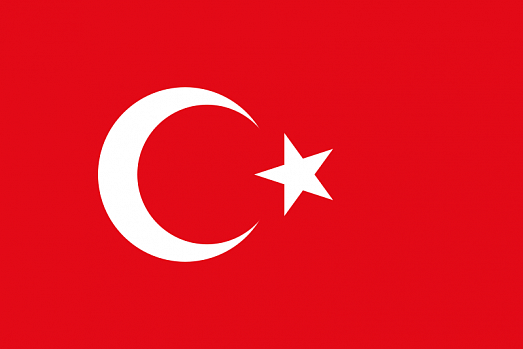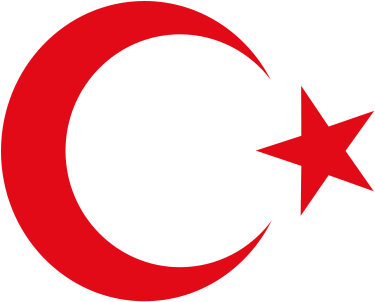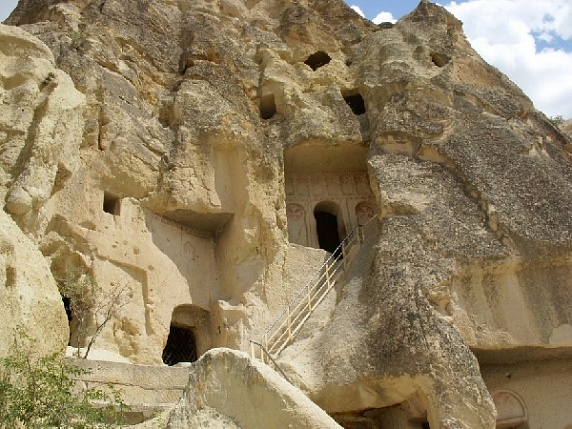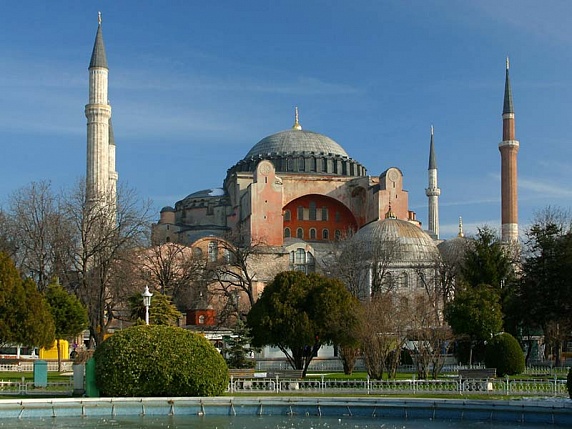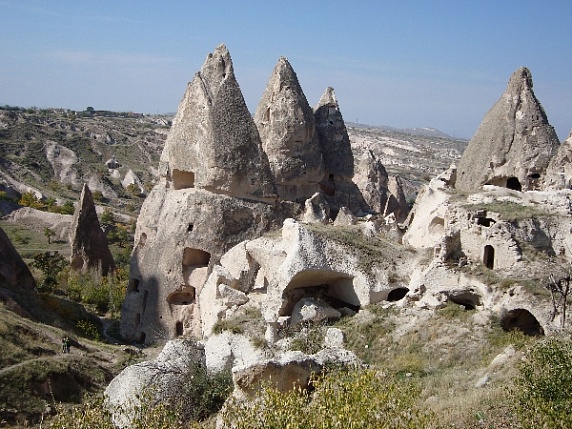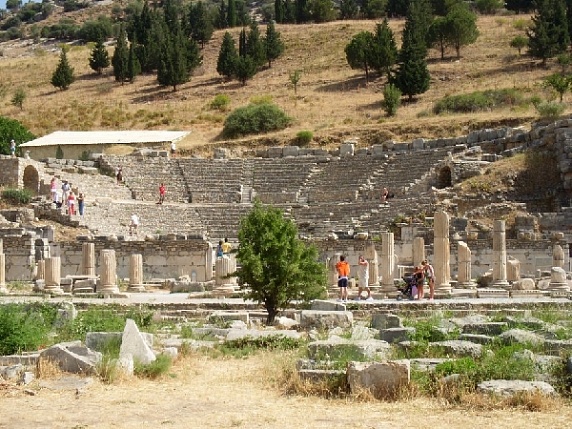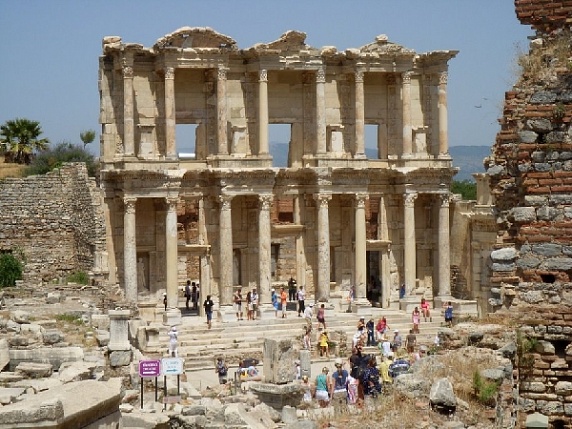 Турецкая Республика
Турецкая Республика
Foreign Minister Sergey Lavrov’s statement and answers to media questions at a joint news conference with Iranian Foreign Minister Mohammad Javad Zarif and Turkish Foreign Minister Mevlut Cavusoglu following a meeting of the Astana process guarantor states, Astana, March 16, 2018
Ladies and gentlemen,
We have just ended a trilateral meeting of foreign ministers of the Russian Federation, the Turkish Republic and the Islamic Republic of Iran that guarantee compliance with the ceasefire regime in Syria. I avail myself of this opportunity to sincerely thank the leaders of the Republic of Kazakhstan, the President of Kazakhstan Nursultan Nazarbayev and our colleague and friend, Foreign Minister of Kazakhstan Kairat Abdrakhmanov, for their hospitality as well as for their assistance to the Astana format throughout the last year.
We have reviewed the results of our work since the Astana process was launched in January 2017 in the capital of Kazakhstan. Since that time, our high-ranking representatives of guarantor countries have held eight rounds of detailed talks in Astana. This made it possible to approve specific measures for scaling down violence on the ground, restoring trust between the conflicting parties, improving the humanitarian situation and incentivising efforts to search for a political solution. It is also important that successful collective efforts made it possible to considerably expedite the complete elimination of ISIS, Jabhat al-Nusra and other terrorist orgnisations, as listed by the UN Security Council. Today, virtually no one can offer any well-substantiated arguments denying the fact that the Astana format and its achievements have become an effective tool for facilitating peace and stability in Syria, that this format has proved its viability, and that it remains highly popular.
I would like to make a reservation here that unsubstantiated attempts have been made and are being made to downplay and even nullify the significance of the Astana process. We can see this very clearly. This is being done by those who don’t like the very fact of partner-like cooperation between Russia, Turkey and Iran, as well as by those who do not want to preserve Syria as an integral state and who want to turn this vitally important country into another chaos-ridden territory where it would be convenient to play geopolitical games.
Contrary to this adventurous line, the three guarantor countries firmly display their invariable commitment to Syria’s sovereignty, independence, unity and territorial integrity. They remain committed to fundamental principles that are formalised in the UN Security Council’s resolutions, primarily UN Security Council’s Resolution 2254. In January 2018, representatives of all sections of Syrian society clearly confirmed these highly important principles during the Syrian National Dialogue Congress, held in Sochi on the initiative of the Presidents of Russia, Turkey and Iran. Today, we have agreed to continue assisting the Syrians in restoring the country’s unity and achieving a political settlement, including through the establishment of the Constitutional Committee, as agreed at the Congress in Sochi, and to launch its work in Geneva in the near future. As before, this implies our firm support for this political process being implemented by the Syrians themselves. As the UN Security Council has decided, the Syrians themselves must reach a mutual agreement without outside interference. It is the people of Syria alone who have to determine their country’s future.
Further coordination of efforts of Russia, Iran and Turkey as guarantor countries is particularly important today when the situation in Syria and such areas as Eastern Ghouta, Yarmouk, Fuah and Kefraya, Al-Rukban, Raqqa, the Idlib and Hama provinces, has been seriously aggravated. We can see a lop-sided interpretation of the situation around Eastern Ghouta, similar to comments on the situation in Eastern Aleppo. Obviously, some of our Western colleagues want to save terrorists and to preserve their combat potential. First of all, this concerns Jabhat al-Nusra terrorists acting as provocateurs in scenarios of Western geopolitical stage directors who are guided by anything, except the interests of the Syrian nation.
Despite daily humanitarian pauses being introduced since February 27, constant fire attacks on Damascus kill civilians, and convoys with humanitarian aid are being blocked. This creates an atmosphere of fear in the Syrian capital and provides a pretext for far-fetched accusations against Syrian authorities and also Russia who reportedly are not doing enough to fulfil the provisions of UN Security Council Resolution 2401. We would like to remind everyone that any use of force against Damascus on the basis of far-fetched pretexts is unacceptable. Recent threats regarding possible unilateral US military strikes against Syria, including Damascus, just like in April 2017, on the basis of groundless accusations as regards the use of chemical weapons by the Government of Syria, are unacceptable and cannot be tolerated. We have stated this to US representatives with all clarity via diplomatic and military channels.
Despite the entire fuss raised around Eastern Ghouta, we continue to assist the efforts being made by the Syrian authorities to evacuate civilians, the sick and the wounded and to provide access to humanitarian convoys, and this work is producing obvious results. Yesterday alone, over 12,000 people left Eastern Ghouta. The UN and the International Committee of the Red Cross have sent a convoy with 137 tonnes of humanitarian aid to Douma. We are determined to continue our efforts to ensure strict and unfailing compliance with all provisions of UN Security Council Resolution 2401 in their entirety, so as to help consolidate the ceasefire regime as well as to improve the humanitarian situation all over Syria, while resolutely combating terrorists who will be targeted despite any resolutions. We are urging all other parties to be guided by these principles.
I would like to speak separately about yesterday’s first meeting of a new mechanism of the Astana format held in Astana. This mechanism is a working group to release detainees and hostages, to exchange the bodies of the deceased and to locate missing persons. Apart from representatives of our three countries, the meeting involved representatives of the UN and the International Committee of the Red Cross. This group’s initial practical work is an important contribution to the process of restoring trust between the Syrians and normalising the overall situation in Syria.
Our working document that was coordinated yesterday determines the parameters of our future work and creates all necessary conditions to make this work effective.
In conclusion, I would like to note once again that the Astana format continues to develop successfully. But it is even more important not to stop after these achievements and to expand the accumulated potential. Today’s meeting confirms our common desire to continue our joint work in the interests of a reliable and long-term Syrian peace settlement. The agreed-upon joint statement made by the three ministers, being circulated after our meeting, reflects our assessments and future plans.
We have also agreed to prepare for a regular summit of the three countries’ leaders, scheduled for April 4 in Turkey. This event is acquiring particular significance today and is called on to strengthen our coordinated efforts for achieving equitable peace in Syria. I am confident that as soon as this goal is achieved, it will positively influence the overall situation in the Middle East.
I would like to thank our colleagues for this extremely close cooperation. We would like to thank our Kazakhstani hosts once again. I am confident that this is not our last meeting in hospitable Kazakhstan.
Question: Did you agree today to extend the duration of the de-escalation zones? If so, how long will they function? Will the extension last six months, as usual, or any other term? Did you discuss the possibility of expanding these de-escalation zones to include new territories including the Afrin area? I would like to clarify the remarks by Turkey’s Foreign Minister Mevlut Cavusoglu: Do I understand correctly that a congress similar to the one in Sochi will be held in Istanbul and later in Iran?
Sergey Lavrov: I would like to start with this. The interpretation was inaccurate. It implies that the November 22 Sochi summit with the Presidents of Russia, Iran and Turkey would not be a one-time event. The next summit of the three presidents is scheduled for April 4 in Turkey. After that, we will, naturally, be ready to accept an invitation from our Iranian friends. We are not talking about a congress, as mentioned by the interpreter, so we ask you not to create any ambiguity in the media.
Regarding your first question, the de-escalation zones continue to function, and these zones are not permanent, as was noted during their creation. This regime has already been extended once. When the current period expires, we will decide on the future of the zones, with due consideration for the situation on the ground and the developments around the zones. We are interested in ending the violations of the ceasefire as soon as possible. And what is also important, we are interested in establishing contacts between the local authorities inside the de-escalation zones and the Syrian government agencies on maintaining normal human life and supporting the local population. This is a key aspect of the de-escalation zone concept. We did not discuss expanding them or the creation of new zones.
Question: Only yesterday, efforts by the Russian Centre for the Reconciliation of Opposing Sides enabled 12,000 people to leave Eastern Ghouta. How would you explain the fact that the UN is not playing a role in this process? Are you satisfied with the UN’s overall contribution to the Geneva process to establish a constitutional committee?
Sergey Lavrov: I have already shared information on Eastern Ghouta. As you have said, more than 12,000 civilians left Eastern Ghouta, and this process continues. I just received a phone call from Moscow. I apologise for having to answer the phone call, but it was on the subject we are now discussing. There are serious problems: people are leaving the area, but the militants are trying to prevent them from doing so. Nevertheless, little by little, efforts to reach out to field commanders in Eastern Ghouta are yielding results. I hope they go further and separate their forces from Jabhat al-Nusra which controls a considerable part of Eastern Ghouta. Humanitarian aid is being sent into this enclave, primarily by the Russian military. As I said in my opening remarks, the UN and the International Committee of the Red Cross (ICRC) yesterday sent a humanitarian convoy with 140 tonnes of aid. This happened after a lengthy pause when the UN was not very active in dealing with these matters. Of course, this was partly attributable to security concerns. Overall, it is obvious that the international community must step up humanitarian assistance.
As I said, humanitarian assistance is being delivered to Eastern Ghouta, and there are now more deliveries like this. There are problems with people leaving Eastern Ghouta, since they need accommodation, and even the most basic goods are lacking, including blankets and essential supplies. We call on those within the international community who have voiced concerns about the humanitarian situation in Syria and the fate of civilians, and primarily the UN and other humanitarian organisations, to provide immediate relief to the people who are fleeing terrorists and are moving from Eastern Ghouta to territories controlled by the Syrian Government.
As for the UN’s role in the Geneva process and efforts to establish a constitutional committee based on the resolutions of the Sochi Congress, I think that it would be premature to draw any conclusions. The Sochi Congress was held just over a month ago. Agreements on how the constitutional committee is to be formed were reached at the Congress. It is obvious that the UN must play a coordinating role, while its actions should be based on the contributions of the three guarantor states. Based on the resolutions of the Sochi Congress, the UN must ensure that the constitutional committee is inclusive and representative in its composition in terms of the participation of all ethnic, religious and political groups in Syrian society.
This is not easy, and let me remind you that today we discussed this matter. In fact, in took our friends from Saudi Arabia more than six months to unite the so-called Riyadh, Cairo and Moscow opposition groups into one delegation, which was a very useful initiative that everyone supported.
I am not saying that the creation of the constitutional committee should take that long, but I would refrain from any estimates at this point, since this is work in progress. This is quite a complicated process, and probably a decisive phase in the political process. As soon as the committee is established and accepted by everyone as a competent body, it is then that the work on constitutional reform can begin. Of course, as stated in all UN Security Council resolutions, any agreement can only be reached by common accord between the government and the opposition. Nobody can impose anything on anyone.
Question: We have to ask about Washington and London’s latest statements and actions regarding Russia. What can you say about the recent statement by the US State Department regarding plans for new sanctions against Russia over the poisoning of Sergey Skripal as well as the steps taken by the US Treasury Department under the so-called Mueller list?
Also, I would like to repeat what the chief UK military official has said: “Russia should go away and shut up.” Do you remember the last time such a high-ranking official used this language in relations with Russia?
Sergey Lavrov: It is highly impossible to remember [spoken in English]. No, I do not recall this, of course. We no longer take notice of this, and we do not get angry over the new sanctions – not that we ever did. They invented a story about our interference in their elections. It began more than a year ago. They have held investigations and hearings. But not a single hard fact has been presented to the public. They are compensating for the absence of facts with ever new sanctions for the same crime, which, it should be said, runs contrary to Anglo-Saxon law. In fact, we have seen a completely unusual side of the Anglo-Saxon system of law and justice. On the other hand, it has happened so many times of late that we should be used to it.
What is happening? I watched BBC and CNN news today. Their manner of providing information is very simple. They say that France, Germany and the US stand in solidarity with Britain. They demand to know why Russia has poisoned that colonel. But Russia says it has not poisoned him. This is how they present the matter. They do not say that an investigation is underway, that it is not over yet and that the results of this investigation have not been submitted to any court, in particular a UK court. They do not say that the UK has referred this problem to the OPCW and hence should act in keeping with its CWC commitments. They do not say that Russia has legitimately asked to see any evidence of these allegations, or that Russia is acting in accordance with an international treaty that has been ratified by Russia, Britain and all other countries, which are seriously concerned about this now. They have told us openly that they would not talk with us. It is a flagrant violation of the CWC provisions, under which any signatory state, before doing anything, must directly interact with the state that is suspected to be the origin of the poisonous substance in question. But they tell us arrogantly that they will not talk with us. Your colleagues from the BBC and other media outlets do not tell this to the Western reader. They phrase the news very simply but they announce them with very meaningful expressions on their faces. Russia has been called upon to explain why it did this, but Russia has denied the responsibility. Needless to say, this is how ordinary people will remember this. These are the methods of Western propaganda. I hope we will never stoop so low.
In principle, I feel embarrassed talking about this situation. I think we did all we could and we have asked absolutely legitimately that the UK do what it should do under the CWC. But you can see the reaction this has produced. Even in British parliament, when an opposition leader asked the country’s leaders to show them what they have on Russia, they refused to do so. I want to repeat that they completely disregard our request that in this case we should wait until the poisoning victim gets better – I pray for this – just as his daughter, who is a Russian citizen. They refuse to say anything about her, although they should. Likewise, they do not share any information about the death of Nikolay Glushkov, even though they should. Why not ask Mr Skripal, when he gets better? He will probably be able to tell us what happened on the day of the tragedy. There is no evidence indicating when a hearing of his case could be held.
We initially cooperated with the British justice authorities in the notorious case of Alexander Litvinenko. But when we started asking concrete questions related to the investigation of his death, our British colleagues stopped working with us and held the hearing behind closed doors. The ruling refers to confidential materials which have not been shown to anyone outside the hearing. Despite the fact that it was a well-orchestrated mystery, they at least held a hearing, after which the British government reviewed its activities and drew conclusions. But no hearing has so far been held in the case of Skripal.
I no longer want to comment on this. It is on the conscience of those who have launched this shameless and unjustified anti-Russia game.
As for the statement by the chief UK military official, as you put it, the UK Defence Secretary is a nice young man who probably wants to make history with his loud statements. “Highly possible” is the main argument of Theresa May regarding Russia’s alleged guilt. And his contribution is, “Russia should go away and shut up.” Or maybe he did not receive a proper education, I don't know.
